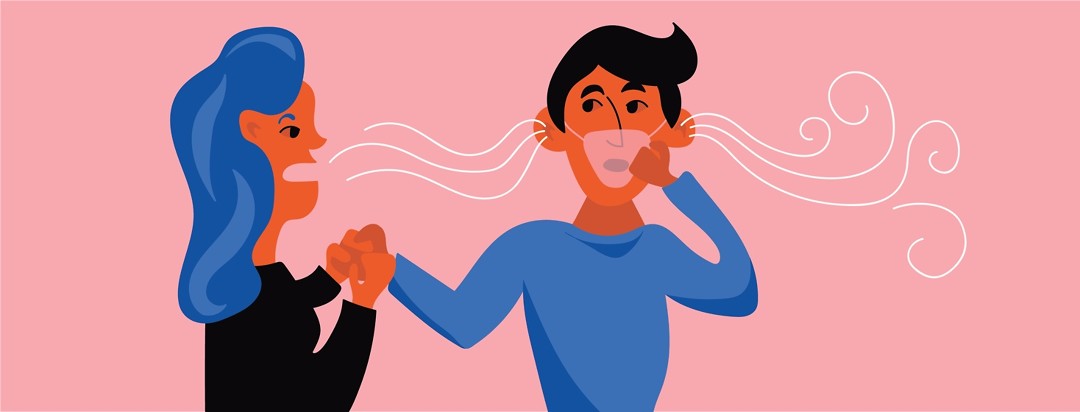Listen To Your Friends And Family
Often times we Respiratory Therapists have to take on the role of teacher. We do our part to fix you. Then we teach you. That's what we do. For me, well, I've been short of breath before. So, I know what it's like. So, that puts me in a unique position with my COPD patients.
I'm called in to help you breathe easier
Now, keep in mind I have to protect myself. I’m going to fudge some parts of this story to protect the identity of the people I meet at work. I have to do this to protect myself and my job. I have kids and I have to keep my job. So, this is just something I have to do. But, the jist of this story is very real, and the point even more so.
So, I enter said COPD patient's room. This usually occurs in the emergency room. They will be feeling short of breath. Their sats are usually in the 80s. This is usually low enough to explain why they're having a flare-up.
Together, the doctor and I agree to place a nasal cannula on the patient. Or, sometimes a mask is needed. But, usually it's just a nasal cannula.
In either case, I explain to the patient what I want to do. If it's a mask, I'll say, "This mask should hopefully get your sats up and keep them at least 90%. That should help you feel better."
Often times, patients will say things like, "Yeah, I know all about that. My sats have been dipping into the 80s for the past two weeks. I keep having to increase my oxygen to get it up to the 90s. I think I should have come in about a week ago.”
Seriously, I hear something like that quite a bit.
I slipped the cannula into the patient's nose
Or, perhaps it's a mask.
I looked at the monitor and watch as the sats gradually rise into the 90% range.
I say, “Now, that’s much better. I can handle high 90%. I wasn’t too excited about your oxygen being in the 70s or 80s.”
My patient will say something like “It’s been dipping into the 70s for a couple weeks.” Of course, if a mask is used, the patient's voice will be echoing under the plastic green mask. “It’s fine when I’m just sitting. But as soon as I move around it starts dipping.”
And I'd say something like, “I bet your daughter or son (or caregiver) tried to convince you to come in. Only you decided you could tough it out. Am I right?”
The patient would say, and often with a smile, “Yes, that’s me. I’m guilty.”
The smile may be due to the fact that they are nice people. But, it may also be euphoria felt by, "Ahhh, all of a sudden I can breathe thanks to this oxygen."
The caregiver will agree with me
She or he will say something like, "I tried many times to convince my mom or dad to at least call her or his doctor. And then she or he just kept getting worse. And now, here we are.”
So, my task was done. I am now ready to say my good-bye’s and split. But, as I'm getting ready to part, I stop to ponder. I wonder if I can turn this into a teaching moment. I specifically do this if the patient or caregiver appear open to such a teaching moment.
Then I say something like, “Well, I have been in your boat before. I have asthma. I had it pretty bad a while back. I work in a hospital. I work with people with asthma and COPD for a living. And I know that despite all my experiences that even I have trouble deciding when I need to seek help. I want to stay home. I want to tough it out. That’s normal.”
My patient will nod, as though saying, “Yeah! That’s me.”
And I'll continue, “ But, if you look so sick that other people notice. And these other people care about you enough to suggest that you seek help. Then you know it’s time to seek help.”
One time, a caregiver stood up and applauded. She said, “Bingo! That’s exactly what needed to be said.”
The patient, in that case, said, “I know. I know. I know I should listen. I should be a better patient.”
“Alright!” I say then, “I will see you guys when you get upstairs.”
Heed the advice of your family and friends
There’s another thing I often tell my patients. If you even think you need to seek help, seek help. And if other’s spot you’re in trouble, that’s probably a perfect time to seek help.
The earlier you seek help during flare-ups, the better. Sometimes, when people come in early enough, all a doctor has to do is make a simple tweak to your treatment regimen. Then you can go home. But, if you wait too long, it may be harder to fix you. You may even need to be admitted.
So, if someone tells you to seek help, seek help! That’s my advice.
Community Poll
Do you have an exercise routine?

Join the conversation